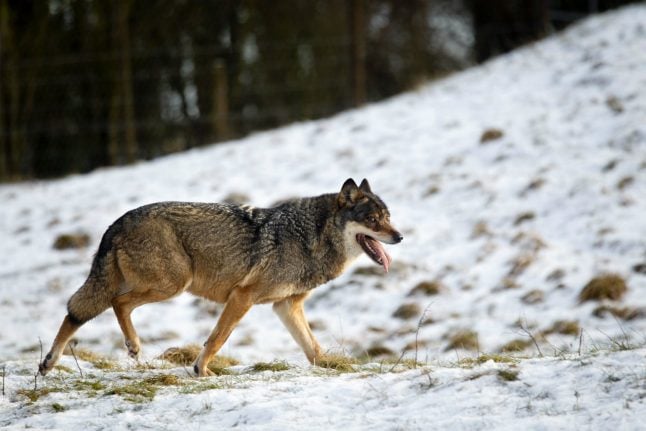The sighting of wolves on the island of Funen means that Denmark now has a significant wolf question, says the professor.
The animal was previously only confirmed to have been in sparsely populated areas of western Jutland.
Wolves, which had not been present in Denmark since 1813, are thought to have returned by migrating north into the Jutland peninsula around 2012.
In February this year, Aarhus University said that it had strong evidence from automated photo equipment suggesting that a pair of wolves was present in west Jutland.
DNA from the animal has now also been confirmed on the island of Funen by researchers from the University of Copenhagen, reports news agency Ritzau.
The Funen wolf DNA was found on the carcass of a deer by a volunteer from wolf tracking association Ulvetracking.dk.
“We simply have to get used to the fact that the wolf is migrating back to Denmark. This needs a plan of action so that people and sheep are able to coexist with it,” Rahbek said to Ritzau, noting that the area in which the wolf is considered to exist should now be extended to take in both Jutland and Funen.
“The wolf is coming to Denmark for good, if we want to have it. And that concerns both Jutland and Funen. The way our landscape is makes it quite possible for us to have packs of wolves,” Rahbek continued.
Read more: Danish farmers call for help as wolf attacks rise
The professor also noted the importance for scholars of working together with amateur wolf tracking enthusiasts who go into the wild to try to spot the animals.
“This is the way forward for finding out where there are wolves. Automatic cameras alone are not enough, since these are set up in places where wolves are already thought to be,” he said.
The professor also said that certainty over the wolf find on Funen was ‘not 100 per cent’ but that, had the DNA been planted or a wolf-dog hybrid, for example, the DNA tests would have shown this.
Although wolves are excellent swimmers and can swim up to 13 kilometres, Rahbek told Ritzau that he thought the possibility of wolves making the long sea journey from Funen to Zealand was low.
“There were of course wolves on Zealand originally, but considering the distance, abundance of the animal and so on, it is not highly likely that this will happen any time soon,” he said.


 Please whitelist us to continue reading.
Please whitelist us to continue reading.